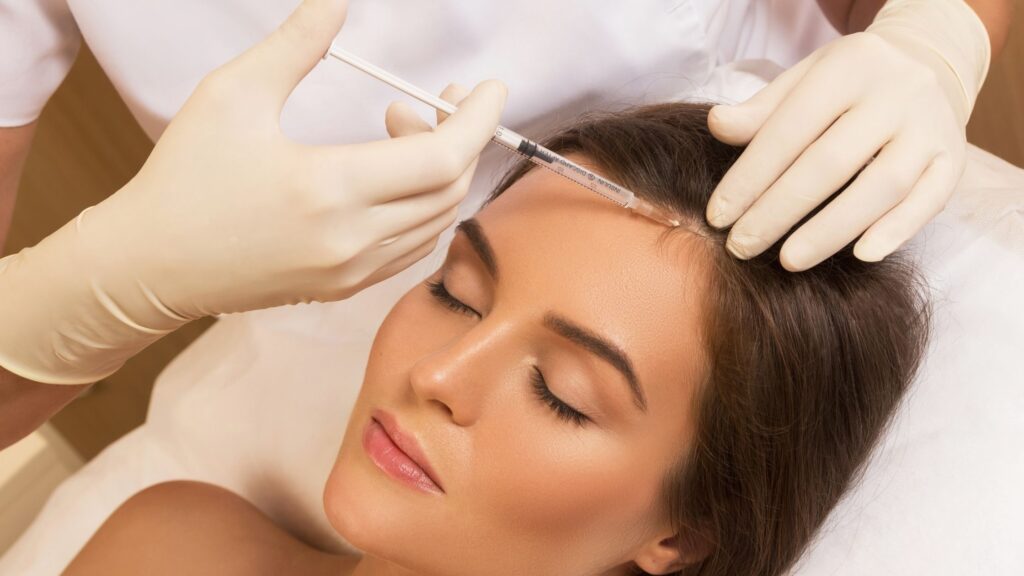Growth factor therapy is a medical and cosmetic treatment that involves the use of naturally occurring proteins known as growth factors to stimulate cell growth, tissue repair, and regeneration. These proteins play a crucial role in various physiological processes, including wound healing, tissue maintenance, and the formation of new blood vessels. Growth factor therapy is used in different medical fields, including dermatology, orthopedics, and regenerative medicine.
Key Points about Growth Factor Therapy:
-
Source of Growth Factors:
- Growth factors used in therapy can be derived from various sources, including platelets in the patient's own blood (platelet-rich plasma or PRP), synthetic preparations, or other biological sources. Platelet-derived growth factors are commonly used in regenerative medicine.
-
Platelet-Rich Plasma (PRP):
- PRP is a popular form of growth factor therapy. It involves collecting a small amount of the patient's blood, processing it to concentrate the platelets, and then injecting the PRP into the target area. PRP contains growth factors that may stimulate tissue repair and regeneration.
-
Applications in Dermatology:
- In dermatology, growth factor therapy is utilized for various purposes, including:
- Wound Healing: Growth factors can accelerate wound healing by promoting the migration and proliferation of cells involved in the repair process.
- Skin Rejuvenation: The stimulation of collagen production and increased cell turnover can contribute to improved skin texture and elasticity.
- Hair Restoration: Growth factor therapy is explored for its potential to stimulate hair follicles and promote hair growth in conditions such as androgenetic alopecia.
- In dermatology, growth factor therapy is utilized for various purposes, including:
-
Cosmetic and Anti-Aging Uses:
- Growth factor therapy is often incorporated into cosmetic treatments, including facial rejuvenation procedures. The application of growth factors is believed to contribute to skin tightening, wrinkle reduction, and overall skin renewal.
-
Orthopedic and Regenerative Medicine:
- In orthopedics, growth factor therapy is investigated for its potential in promoting tissue healing and reducing inflammation in conditions such as osteoarthritis and tendon injuries. Growth factors may stimulate the repair of damaged cartilage and tissues.
-
Procedure:
- The procedure for growth factor therapy varies based on the specific application. In the case of PRP, for example, the blood is drawn, processed to concentrate the platelets, and then reintroduced into the body through injection or topical application.
-
Safety:
- Growth factor therapy, particularly when using the patient's own blood components like PRP, is generally considered safe. Since it involves using the body's natural substances, the risk of adverse reactions is minimized.
Considerations:
-
Professional Guidance:
- Growth factor therapy, especially for cosmetic or medical purposes, should be performed by qualified healthcare professionals, such as dermatologists or orthopedic specialists, who have experience in the specific application.
-
Patient Suitability:
- The suitability of growth factor therapy depends on the individual's health, medical history, and the specific condition being treated. A consultation with a healthcare professional is important to determine the appropriateness of the treatment.
-
Number of Sessions:
- The number of therapy sessions required can vary based on the intended outcome and the specific condition. Some individuals may need a series of sessions for optimal results.
-
Realistic Expectations:
- While growth factor therapy may have positive effects on tissue repair and rejuvenation, individuals should have realistic expectations regarding the extent of improvement and the time it takes to see results.
-
Combination Therapies:
- Growth factor therapy is sometimes used in combination with other treatments, such as microneedling, laser therapy, or surgical procedures, for a synergistic effect.
Before undergoing growth factor therapy, individuals should consult with a qualified healthcare professional to discuss their goals, assess their suitability for the treatment, and receive personalized advice on the potential benefits and risks.



